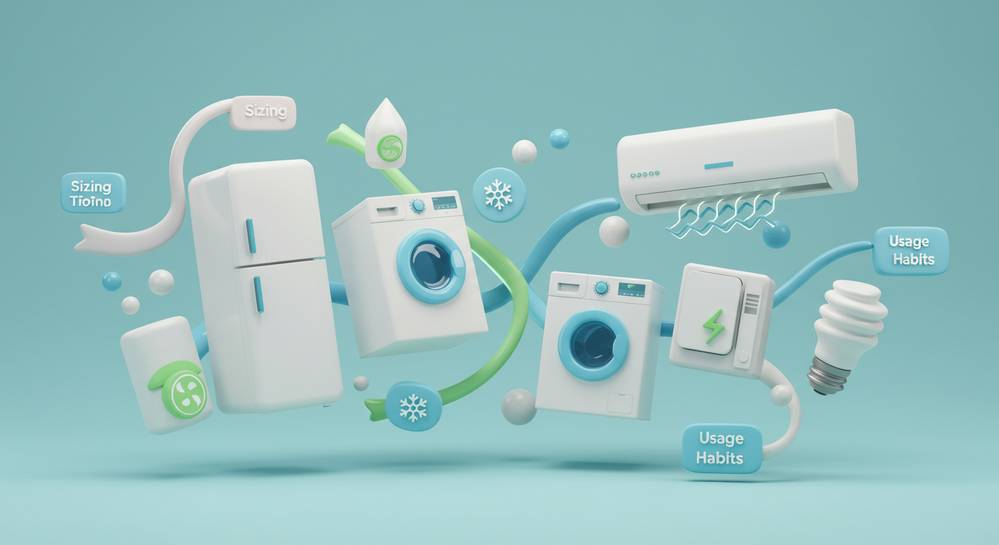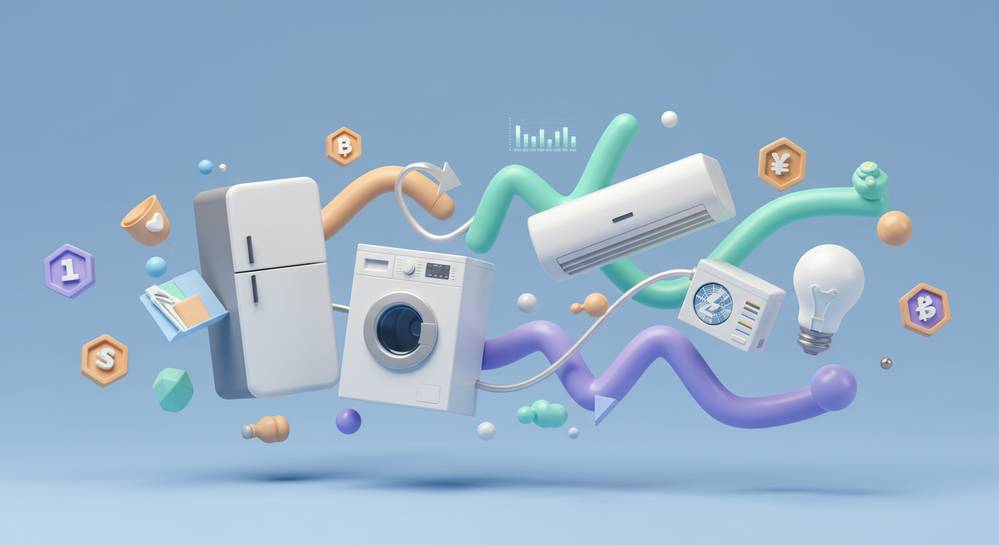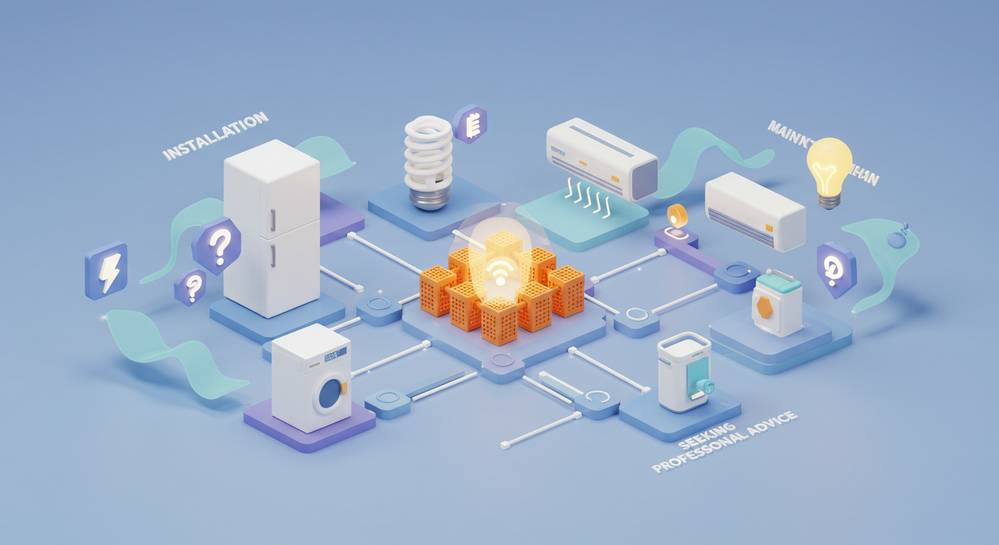In today’s world, where sustainability and cost-efficiency are paramount, understanding how to choose energy saving appliances is more crucial than ever. Making informed decisions not only benefits your wallet by significantly lowering utility bills but also plays a vital role in reducing your environmental impact. This guide will walk you through the essential factors and considerations, empowering you to select appliances that are both eco-friendly and economically sensible for your home.
Understanding Energy Ratings and Labels
To truly choose energy saving appliances, look beyond basic Energy Star or EU A-ratings. The most critical metric is estimated annual energy consumption, measured in kilowatt-hours (kWh). This figure, prominent on labels like the U.S. EnergyGuide, directly translates to your yearly operating costs. Comparing kWh values across models reveals long-term financial impact.
Interpreting Energy Consumption Data
Do not solely rely on initial purchase price. A slightly more expensive appliance with lower annual kWh consumption often offers superior return on investment. For instance, a refrigerator using 300 kWh annually versus 450 kWh saves substantial amounts. This long-term view maximizes savings.
- Annual kWh: Direct indicator of energy use; lower is better.
- Estimated Annual Operating Cost: Visualizes financial benefit, based on average utility rates.
- Comparison Range: EnergyGuide labels show a range for similar models, indicating an appliance’s position.
Consider specific technologies boosting efficiency. Inverter compressors or variable-speed motors drastically reduce energy draw. These advanced components, despite initial cost, optimize appliance energy efficiency and long-term savings.
Sizing, Features, and Usage Habits

Choosing energy saving appliances effectively involves more than just energy labels. Proper sizing is paramount. An oversized appliance, even with a high energy rating, consumes more than a smaller, appropriately matched unit. For example, a large refrigerator for a single person wastes energy. Always match capacity to actual household needs to truly optimize energy use.
Selecting Energy-Saving Features
When you consider how to choose energy saving appliances, prioritize features that genuinely reduce consumption. Resist unnecessary additions that might increase complexity or standby power. Focus on core technologies that enhance efficiency. Examples include advanced insulation in refrigerators or precise temperature controls in ovens. These features offer tangible energy benefits.
Cultivating Energy-Efficient Usage Habits
Even the most efficient appliance can waste energy through poor habits. Consistently overfilling dryers or frequently opening refrigerator doors negates inherent efficiency. Adopt mindful usage: run full loads, utilize eco-modes, and perform regular maintenance. Your daily routine significantly impacts overall energy consumption, maximizing appliance potential.
Lifecycle Cost and Advanced Technologies

When you consider how to choose energy saving appliances, shift your focus from just the initial purchase price. The total lifecycle cost, encompassing purchase and operational expenses over its lifespan, is crucial. A cheaper upfront model often incurs significantly higher electricity bills, costing more in the long run. Calculate potential energy savings over 5-10 years to make a truly informed decision.
Exploring Inverter Technology
Many modern energy-efficient appliances, like air conditioners and refrigerators, feature inverter technology. Unlike traditional compressors that cycle on and off, inverter compressors adjust their speed. This precise control maintains consistent temperatures, leading to lower energy consumption, quieter operation, and extended appliance lifespan. This advanced technology offers substantial long-term energy savings compared to older, non-inverter models.
Smart Features and Connectivity
Advanced smart features and connectivity also play a role in energy efficiency. Appliances connected to your home network can offer remote monitoring, optimized scheduling, and usage analytics. For instance, a smart washing machine might suggest ideal cycles based on load size, or a smart dryer could use sensors to prevent over-drying. While not all smart features directly save energy, those designed for optimization provide significant benefits.
Installation, Maintenance, and Seeking Professional Advice

Choosing energy saving appliances is just the start. Proper installation and diligent maintenance are equally critical. An improperly installed refrigerator, for example, overworks due to blocked ventilation, wasting electricity. These steps ensure optimal performance and deliver promised savings.
Professional Appliance Installation
For complex appliances like dishwashers or built-in ovens, professional installation is highly recommended. Experts ensure secure connections and adequate ventilation. This prevents common issues leading to energy waste, maximizing efficiency from day one.
Regular Maintenance for Efficiency
Routine maintenance significantly extends appliance life and efficiency. Cleaning refrigerator coils or replacing furnace filters ensures smoother operation. Less energy consumption results. Always consult your user manual for specific schedules.
Seeking Expert Advice
If you notice unusual noise, reduced performance, or high energy bills, consult a qualified technician. Early diagnosis and repair prevent further energy waste. For major purchases, an energy auditor can provide tailored recommendations, optimizing your home’s overall energy footprint.
Ultimately, making smart choices when learning how to choose energy saving appliances is a strategic investment in your home and the planet. By prioritizing energy ratings, considering lifecycle costs, adopting smart usage habits, and ensuring proper maintenance, you can create a more sustainable and cost-effective living environment. Embrace efficiency and start transforming your home today with expert insights from Efficient Home Goods.